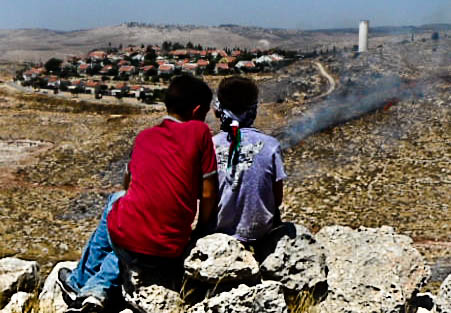Tag: Arrests
-
Action Alert: Demand the release of Nabi Saleh popular leaders
Trial of Bassem Tamimi to resume on 27 June 2011. Non-violent protesters are rising up to challenge the Israeli occupation, from the chambers of Congress to the shores of the Mediterranean. And while other action have received global media coverage, a small West Bank village named Nabi Saleh has been struggling without the attention it…
-
Presence with a splash of tea is recipe for detainment
19 June 2011 | International Solidarity Movement On Sunday June 19th, six International Solidarity Movement activists from the United Kingdom, United States, Brazil, Germany, and Sweden were illegally arrested by the Israeli military after attending a demonstration against the construction on confiscated land belonging to the Palestinian village, Deir Qaddis. Apart from numerous Palestinian, Israeli, and international…
-
Teenage boy targeted as part of Israeli campaign against local family
18 June 2011 | Wadi Hilweh Information Center A 14-year old boy was abducted by Israeli undercover forces from Bir Ayyub this morning. Ahmed Siyam was taken by an undercover unit from outside his uncle’s shop in Bir Ayyub and transferred to Salah al-Din police station. Police claimed that the boy “constitutes a danger to…

